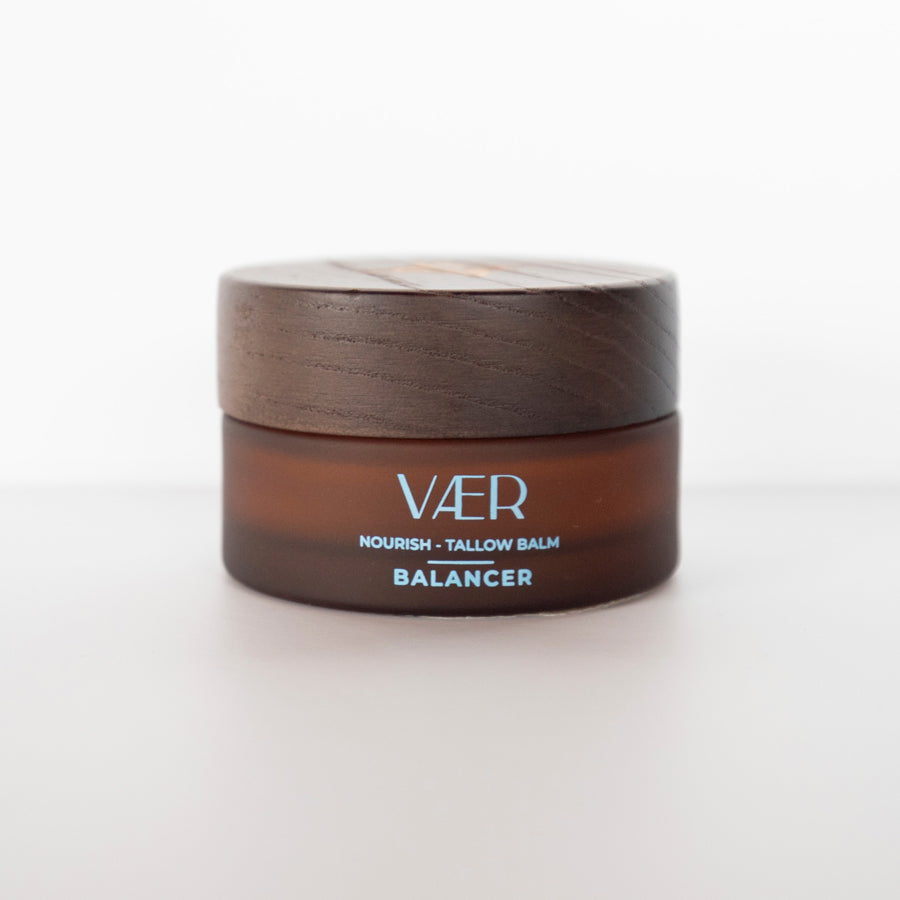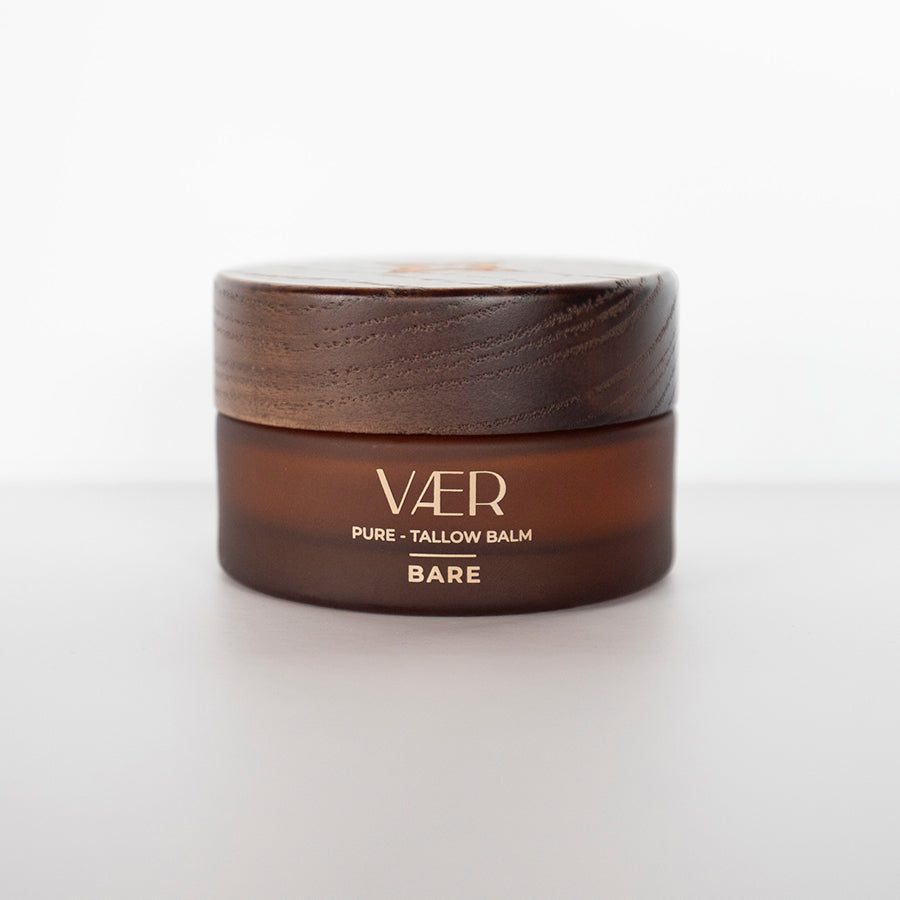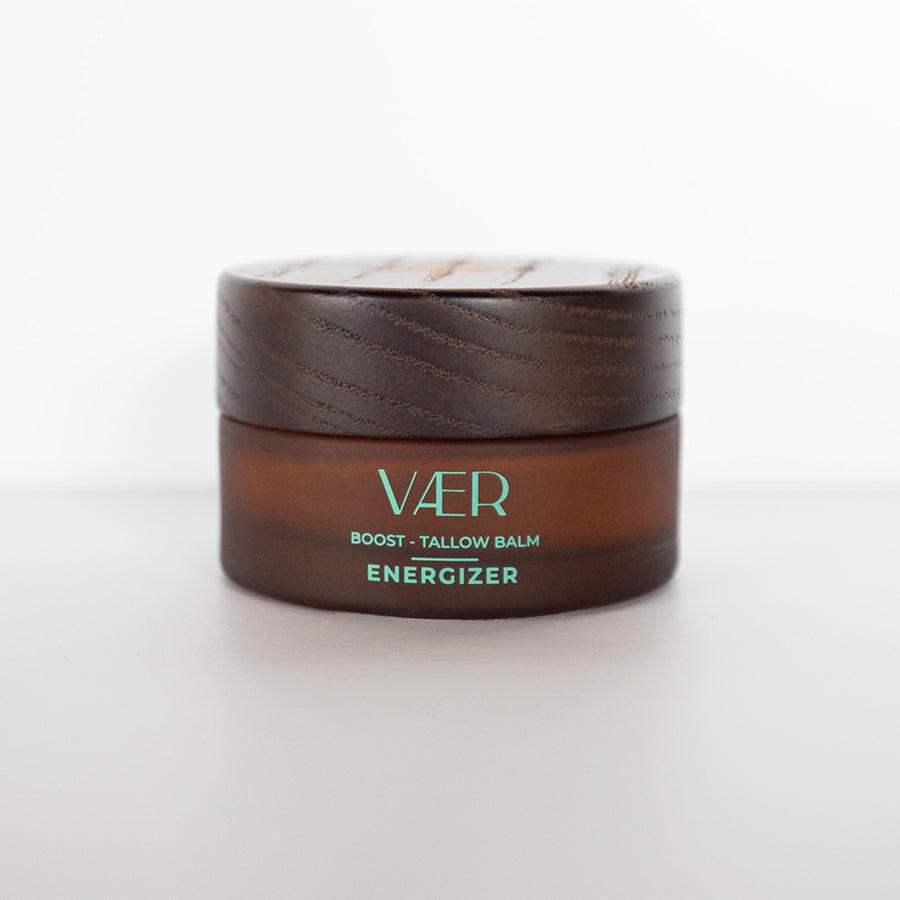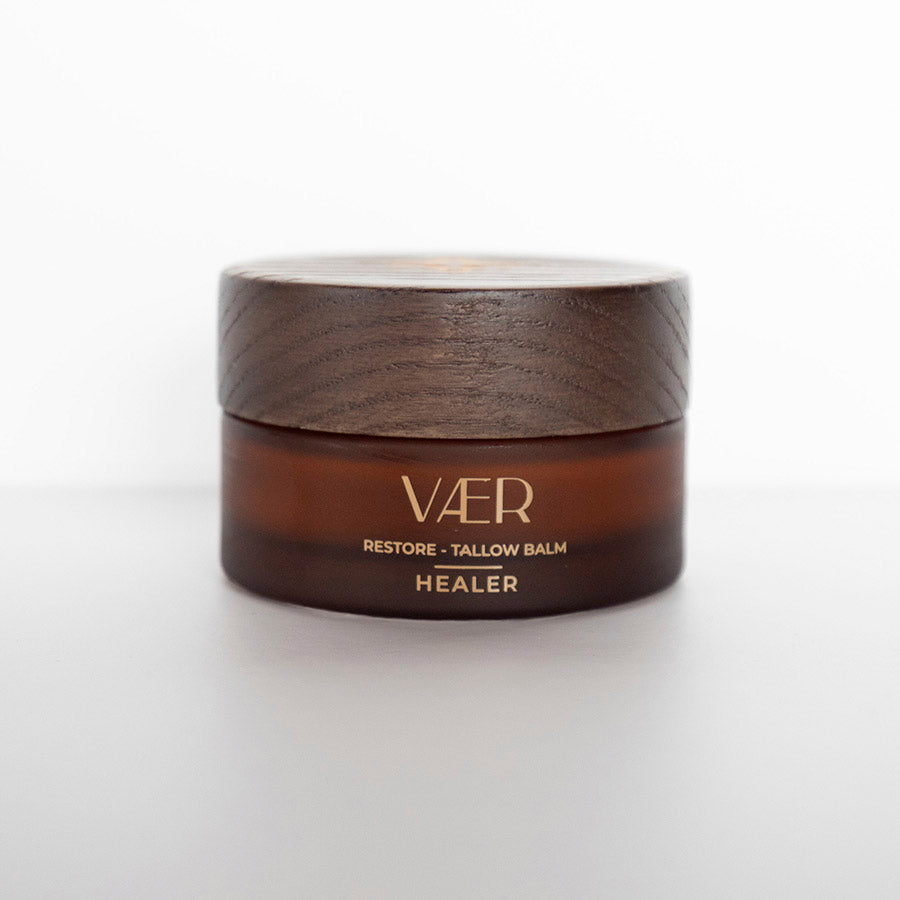Jojoba Oil for Skin | Nature’s Perfect Moisturizer

Your skin is Hungry, not Thirsty!
What your skin actually needs: Jojoba
Why Cold Pressed Jojoba?
About
Deeper Information about Cold Pressed Jojoba
Comparing Jojoba to Common Alternatives
How to Read The Label

Scientific Benefits of Jojoba for Skin
What Drives VAER
Making the Hero Ingredient: Cold Pressed Jojoba
History and Origin of Jojoba
Sustainability and Ethics of Jojoba
Extraction Method of Jojoba
Conclusion
Products with Cold Pressed Jojoba
| Products | Quantity | Price | Total |
|---|---|---|---|
 BALANCER Nourish Tallow Balm (Nourishing Ritual)balmbalancer1oz
$54.00/ea
|
|
$54.00/ea | $0.00 |
 BARE Everywhere Tallow Balm (Pure Ritual)balmbare1oz
$49.00/ea
|
|
$49.00/ea | $0.00 |
 ENERGIZER Boost Tallow Balm (Energizing Ritual)balmenergiser1oz
$54.00/ea
|
|
$54.00/ea | $0.00 |
 HEALER Restore Tallow Balm (Healing Ritual)balmhealer1oz
$54.00/ea
|
|
$54.00/ea | $0.00 |
 The Ritual Balm Collection | Complete 4-Balm Set4collectionbalm1oz
$210.00/ea
|
|
$210.00/ea | $0.00 |
| 0 items |
0 items Product subtotal: $0.00 Taxes and shipping calculated at checkout |
||
Frequently Asked Questions
Is jojoba oil good for oily skin?
What makes jojoba oil good for skin
Is jojoba oil safe for oily or acne prone skin
Why is jojoba included in VÆR balms
Does jojoba oil help repair the skin barrier
Is jojoba oil safe for sensitive skin
Is jojoba oil comedogenic
What vitamins or nutrients are in jojoba oil
How does jojoba differ from seed oils
Is jojoba oil good for wrinkles or fine lines
Can I use jojoba oil around the eyes
Is jojoba oil safe for children
Does jojoba oil help with flaky or dry patches
Related Articles
Why Jojoba not Olive Oil
We don’t hate olive oil—in fact, we respect it. But for daily skincare, jojoba oil wins. Here’s why VÆR chooses jojoba over olive oil in...
Read more →Seed Oil Free Skincare: What It Means, and Why It Matters
The seed oil conversation has left the kitchen and entered the bathroom. In this post, we break down why cutting PUFA-heavy oils from your skincare...
Read more →What Ingredients We Don’t Use (And Why It Matters)
Clean isn’t always enough. At VÆR, we go beyond “non-toxic” to eliminate ingredients that disrupt skin balance, cause long-term dependency, or offer no real nourishment....
Read more →
